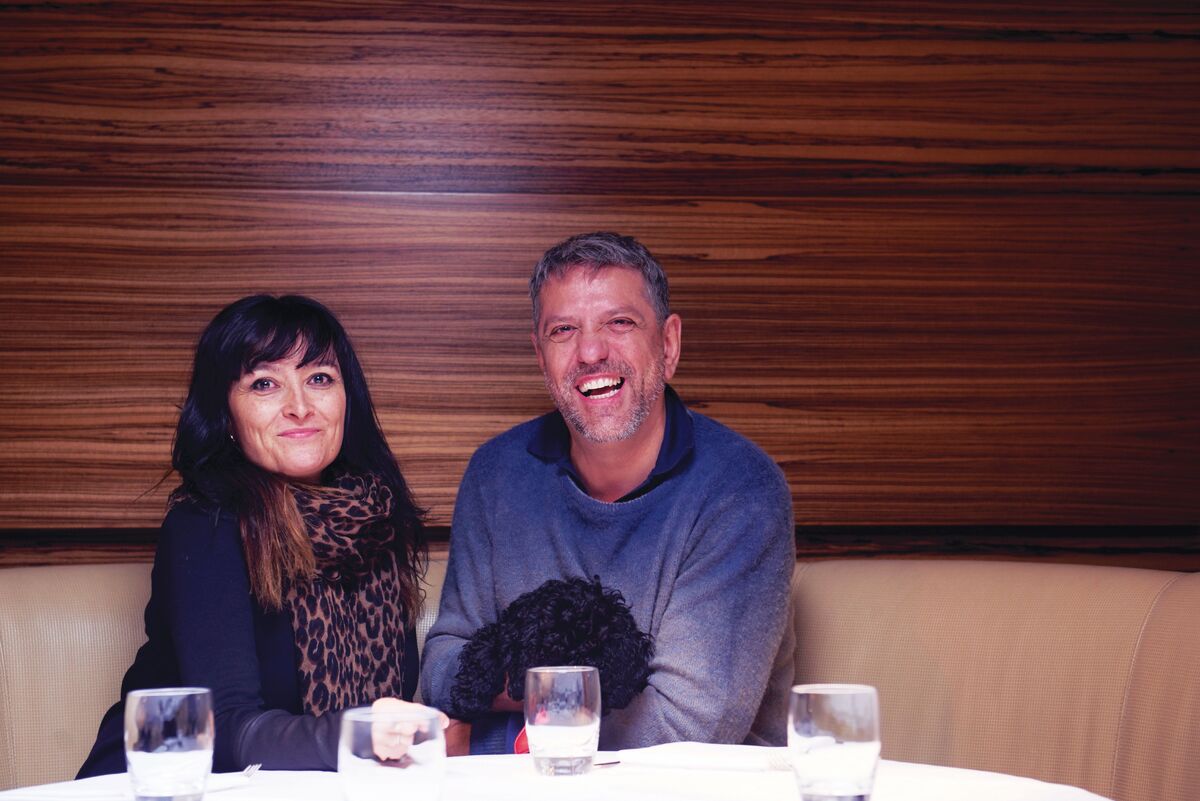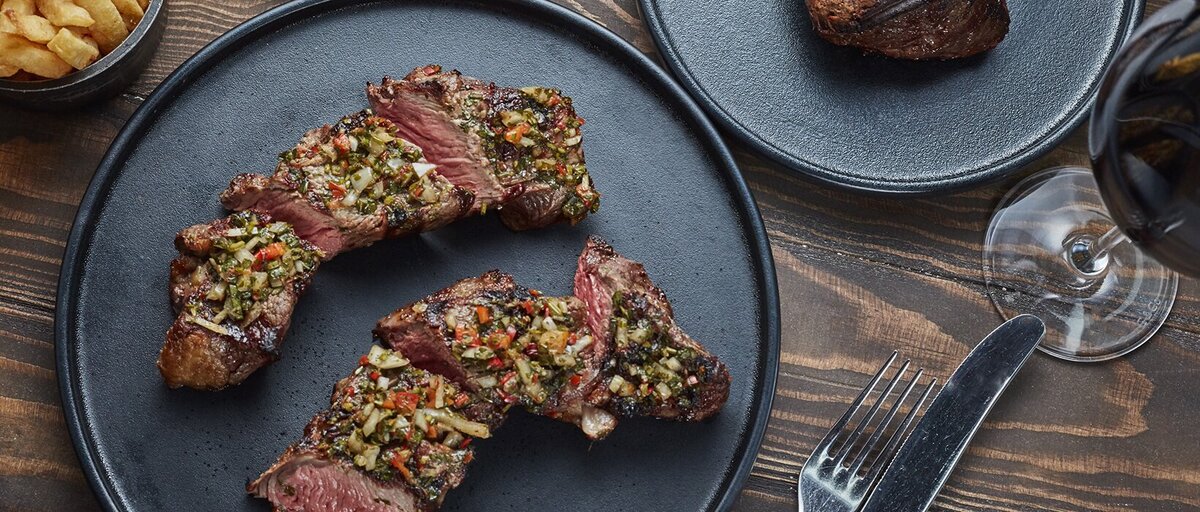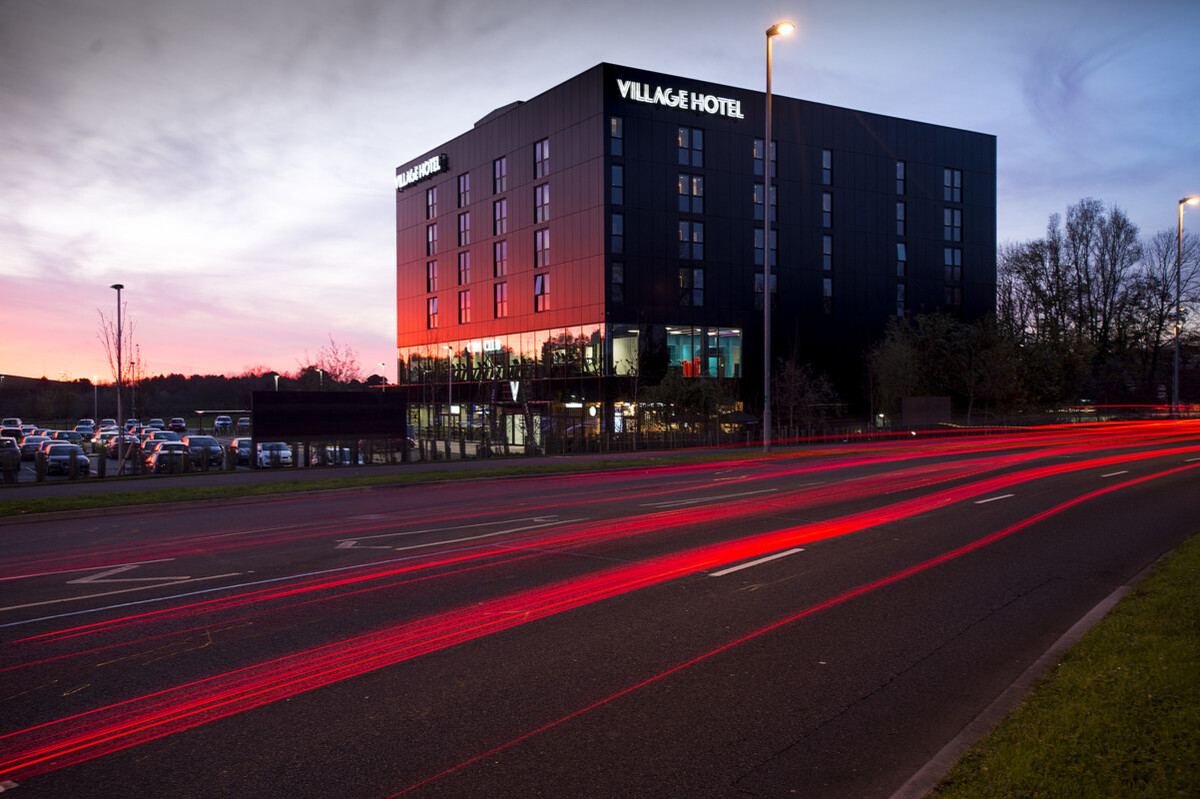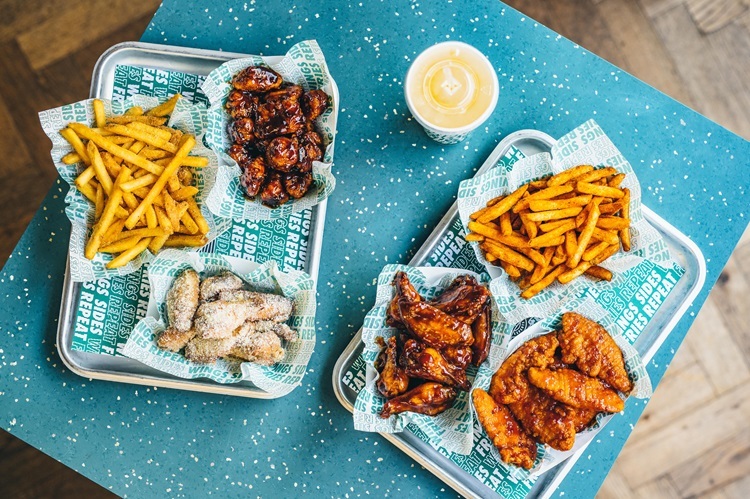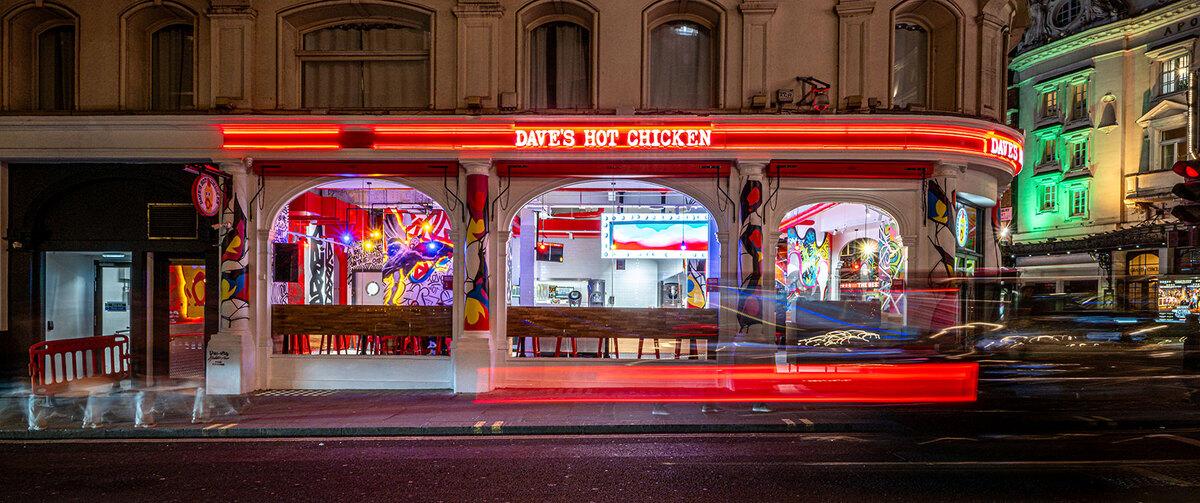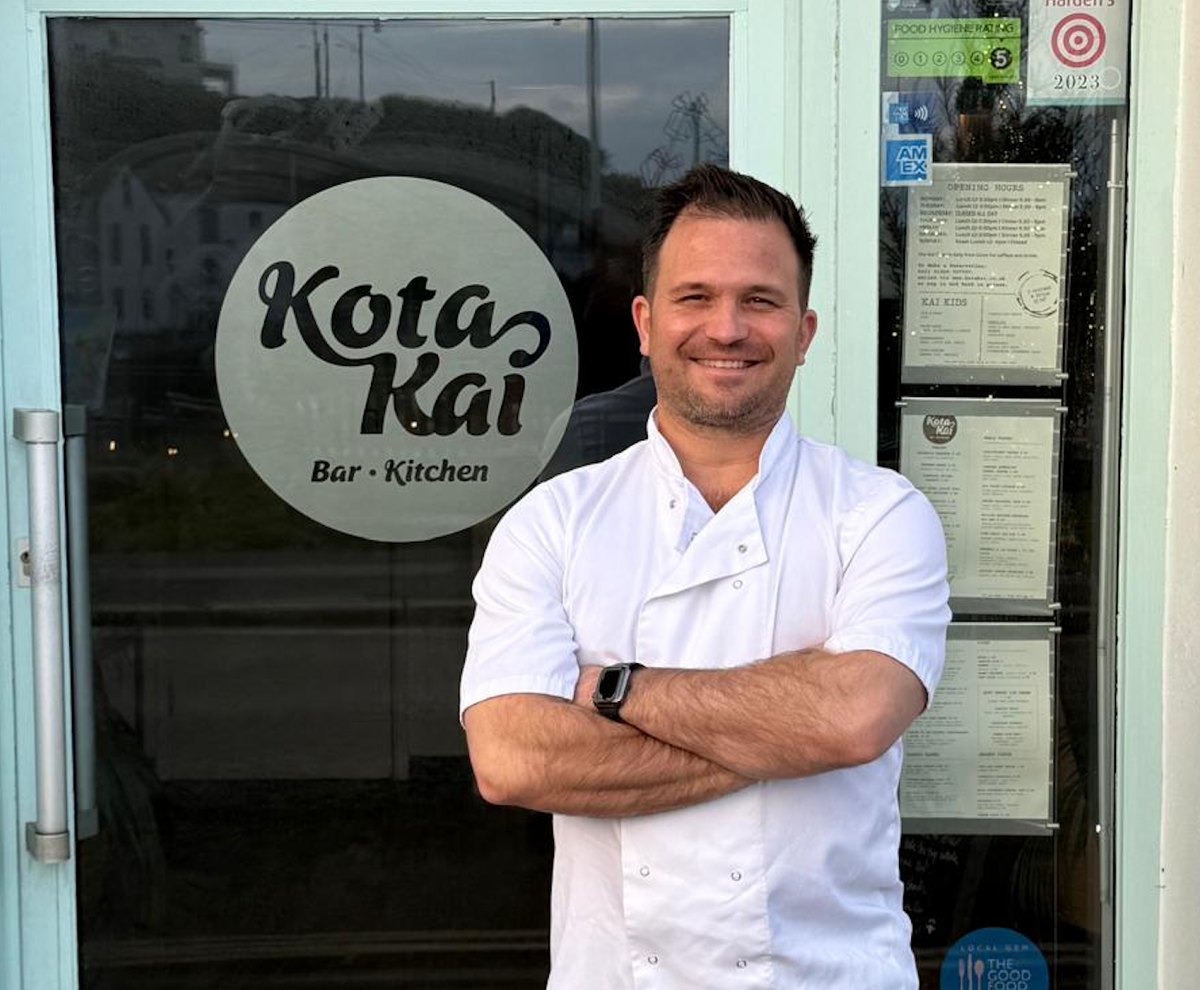Phil Howard: the drugs don't work
Phil Howard is one of Britain's most accomplished and respected chefs - he's also a recovering drug addict. Here, to conclude Caterer's Be Aware campaign, he talks candidly to Ark Foundation consultant Peter Kay about battling addiction, his brother's fatal overdose and the impact drugs had on his professional and private life.
WATCH THE VIDEO INTERVIEW HERE
Phil Howard is one of the most successful chefs in Britain. The proud owner of two Michelin stars at the fashionably chic the Square in Mayfair, he also backs colleague and rising star Brett Graham at Michelin-starred the Ledbury in Notting Hill and has recently announced a partnership with London restaurateur Rebecca Mascarenhas which will see him relaunch the Bistrot Eleven eaterie (to be called Kitchen W8) in Kensington this October in addition to his existing commitments.
A graduate with a degree in microbiology and known for his considered view, he won the Chef Award at the 1998 Cateys - some two years before his contemporary Gordon Ramsay - when he was just 31. Without even delving into his wonderful family life, you'd say he has it all. What you wouldn't expect to hear is that he spent three years as a cocaine addict in the early 1990s.
I have known Phil for only a matter of years, but I had heard through the grapevine that we "went to the same church", so to speak - we both attended self-help meetings to seek a solution from active addiction.
I am deemed by some as an expert in the field of addiction - this is not my own title nor my own belief but I do acknowledge that with more than 17 years of continuous clean and sober time I have a valid opinion. My drugs of choice were alcohol, cannabis and cocaine - in that order - sex, prescription and non-prescription medication and gambling followed shortly after when the ones of choice were not at my disposal. I drank away a house, a marriage and, for a period, the love of three children, approximately £100,000 and every semblance of respect and dignity I had acquired.
Phil's story is a different one, but it still resulted in the loss of his marriage (thankfully, he and his wife, Jennie, are very much back together and have been for 10 years), the loss of his brother, who sadly died from a drugs overdose 12 years ago, and the loss of his self-esteem. Crack cocaine, cannabis and alcohol took him twice to rehab before his turn around began.
In this revealing interview there are truthful reflections on a life of addiction intertwined with one attempting to display the vast talent that Phil possesses as a chef. For many individuals the concept of addiction as an illness or a disease is simply deferring responsibility, a cop-out for a lack of self will and an excuse for unacceptable behaviour. I work in the business of supporting people with addiction issues, predominantly sports people - many highly successful and high profile.
Catering is like any other industry - you will encounter those with addiction issues, but statistically, like professional athletes, people in the catering industry show a higher propensity to the disease.
The Ark Foundation, started by Michael Quinn and under the umbrella of Hospitality Action, does what it can to educate and support individuals with matters pertaining to addiction. While we might be very well received in the industry for what we do, it is people like Phil Howard, who has been clean for 14 years, coming forward to share his story that really makes a difference. There are others, many others.
PHIL'S STORY
Peter Kay Phil, have you consciously tried to keep your past secret?
Phil Howard I have made no particular issue or non-issue of it. Those that worked at the Square in the early years would have been entangled in my lifestyle at the time. I then went through various phases of treatment and rehab and came back to the restaurant and got on with my career. I did make a decision to maintain my anonymity and I have no idea what has filtered down over the generations of the chefs at the Square, what judgements have been made.
PK What was the catalyst for your recovery from addiction?
PH The catalyst was Nigel Platts-Martin, my business partner. He was very much working at the Square in those days and bore witness to my descent into trouble. But being the man he is - inquisitive, professional and intelligent - he did his research and asked an addiction expert what the characteristics of addiction were, the warning signs, the indicators. Once he had a grasp of the situation he simply held up a mirror in front of me from which I was unable to look away, so to speak. It was not confrontational, rather a challenge with care and compassion fairly and squarely delivered in one of the back corridors of the Square after service.
PK How did you feel?
PH The only word I can use is "relief". I was totally shocked, just like a rabbit in the headlights. When a person is entangled in the cycle of addiction there appears to be no way out. Consequences become inevitable and frequent but count for nothing and even when you start spiralling out of control, it appears that you have no choice but to repeat the behaviour again and again and again. It certainly appeared to me there was no way out.
PK When I had one of those "confrontations" I was terribly defensive. I was in a hospital bed with severe alcohol and other drug-related illnesses. I felt cornered and knew that this was a fairly tricky one to get out of, but out of it I must get - the alternative was abhorrent. The thought of not being able to drink again, have a spliff again, a line again was one I could not entertain nor visualise. I was clinging on with every sinew in my body attempting to persuade all that would listen, and there were not many, that I did not have a problem! I take it that you did not have that experience?
PH No. I understand the stage you describe well, but I had gone on from there. I was grateful someone had found me out because I could not find myself out or get out of it myself. It wasn't clubbing or hookers, rock and roll or celebrity; in the end it was me on my own, hour after hour, day after day in a disused basement car park. The lies and deceit and constant concealing of such a major problem is a completely soul-destroying process. Finding the money, getting the drugs and taking the drugs while attempting to run a kitchen and family became the crippling reality of my life.
It was part of my make-up when younger to try anything, do everything and have a good laugh. I was always in trouble at school. I never said no to anything, and drugs were a part of that. But it was only really with the pressure of work, the incessant grind of kitchens and service, deadlines and challenges that it got out of hand. I was crumbling under the huge pressure of work. I don't know if it was too early in my career for that responsibility; I was newly married and trying to combine the two, keep everyone happy and I folded under the strain. But in the end it was the drugs, drugs, drugs and more drugs.
PK Many people's perception of my life - and possibly yours then - was that it was fun, glamorous, nightclubs and associated debauchery. For me, looking back it wasn't fun - rather the loneliest period of my life.
PH Yes, in the end there comes this intangible point in the addict's or alcoholic's progressive addiction when you are no longer in charge and the drugs have complete psychological and physical control. That's the point when the fun has long gone, even if it was there in the first place, and the isolation steps in.
PK A key point for me was fear. Fear of everything. Fear of getting up in the morning, fear of being found out, of not being able to cook, fear of not having the money to buy the stuff
PH Also the fear surrounding the inability to break the cycle, which was intensely crippling. I would get up every day with the shame and remorse of the day before, not knowing what I had done, what I had said. To have to look my wife in the eyes again from what felt like another planet. I would say to myself this day was going to be different - and then within a matter of hours, sometimes minutes, it had all gone wrong again and the cycle continued.
PK Why is it that this is not a problem that everyone is afflicted with? I worked with numerous chefs who did the same as me, and in some cases more, yet these people never lost their careers or families?
PH This is the great mystery of addiction. An addictive personality itself can manifest itself in different ways. My personal take on it is this: I am in many ways an extreme kind of person; I'm quite compulsive, a perfectionist and a little OCD perhaps! The paradox is that, on the other hand, I am very laid back.
Addiction is not selective in any way whatsoever. Age, intellect, attitude, race, profession, background - none of these factors plays any part. For myself, I think I was genetically predisposed. I have a make-up that means I choose to "escape" from life's responsibilities. That is what it is, whether you are eating, shopping, gambling, sticking cocaine up your nose or drinking, it's all a fuse mechanism to escape for that moment and dramatically change the way you feel, and alter your perception of the world and others' perception of you. And for most people, most normal people, after that one or after that night they can simply stop. They go to bed and get up a bit ropy the next morning. But for an addict one is really too many and a thousand is never enough. There is an overwhelming compulsion to "use" again.
I do not really think it's about upbringing. A lot of good kids came out of bad homes and a lot of bad kids came out of good homes. Looking back over school days there were kids like me who never batted an eyelid when there was something new in life to sample. For me, there are three types of person in relation to this issue. There are those, like me, who said yes to everything in their teenage years, trying everything that came their way and seeking out anything that didn't. There are those who would buckle and participate in things under the umbrella of peer pressure and, finally, those who would simply say no. The inevitable question is: why do some people do the logical and correct thing by saying no and others not? For people like me, all the knowledge and advice in the world stood for nothing at those key decision-making moments. I believe this is the starting point for so many, but not all, addicts.
PK Do you have an understanding of what your using drugs to the extreme was about? Was it fear-based? Did you have a high opinion of yourself?
PH If I had to put a tag on it, then it would be relief from exhaustion and escape from pressure. I was giving absolutely everything I had to the Square; my new wife, Jen, and I were going down the swanny. I was working like a lunatic in what had very quickly become a hugely busy and successful restaurant. My route to head chef was unusual, but in a nutshell I had gone from chef de partie to head chef overnight at the ripe old age of 23. Life was pretty full-on and I was stretched to the limit in all areas! To put it bluntly, a line of cocaine provided an immediate solution. It was fantastic and in the early days it worked. Not only did it take the exhaustion away but it energised me, charged me up and gave me confidence.
PK I am just thinking about the fact that we both used alcohol and other drugs alongside other people but they did not turn into addicts.
PH I knew countless people who partied like I did yet they eventually grew up and grew out of it. It wasn't my route, but it explains the stigma attached to addiction that there are those with that ability to alter course with apparent ease when they so decide. For an addict, you have to firstly accept you're an addict and then get on with the solution, not focus on the reasons why - they are not going to change the facts.
PK In my mainstream work with footballers I come across everyday men who are looked upon with a certain admiration and adoration. People I talk to think that they all have no cares or worries, phobias or discontent. But in my years of working with so-called elite professionals I have not come across a man yet who has not suffered feelings of low self-worth, self-esteem, self-belief or who has not at one time or another felt that they might be found out for not being good enough. I spent my life in kitchens feeling this way. For me I hid this lack of self-worth and masked it with aggression, arrogance and bullying to make myself feel better. Have you experienced this in the trade?
PH In terms of trying to medicate and relieve stress of the day's graft I don't think you can get anything worse than a kitchen. As a head chef you are judged in many ways - your food, of course, but also whether you a grafter Are you first in and last out? Are you still at the stove with sweat pouring off you, pan burns tattooed up each arm, pushing on when all others are waning? It is one of the most insidious and grinding traits in the industry. But that pressure to be at the stove constantly and be creative and inspirational is so draining. I am also aware that a lot of this is largely self-imposed but born out of the incessant judgementalism one hears in a kitchen. Not only am I supposed to be grafting like a chef de partie and creating like an artist but for many there is a philosophy that I am supposed to be a raging tyrant as well, screaming abuse at the brigade all day long.
You ask me whether I ever, like you, felt a low self-worth, low self-esteem or a fraud. When this was being dished out yes, absolutely because I simply did not fit that bill. It is not the kind of person that I am nor would like to be. I am a much more gentle and sensitive person than the stereotypical chef. I have learnt to be effective in my role in other ways.
PK It is strange but whenever I talk to any high-achieving chefs within the industry the similarities between professional cooking and professional football are astounding. In football, like catering, there are so many people and establishments nurturing the talent brilliantly. Then there is the "old school" that keeps shouting at individuals, shaming and telling them that they are shit and expecting them to rise to the challenge. I had hoped that the industry had grown out of this, but perhaps not?
PH Look, there is always a bit of "I'll give as good as I got" filtering down the system and naturally when the ones that were battered as commis and chefs de partie rise to power they may well treat others as they were treated themselves. Unfortunately there is evidence to suggest that this kind of leadership or direction has obtained results, albeit in the short term. Some chefs have achieved great things for their restaurants or themselves running kitchens in this way - possibly and probably at the expense of the well-being of the staff. A person cannot withstand a continued onslaught of abusive hours, personal attack and deprivation without burning out or looking for some kind of relief. This comes in many forms but the turning to alcohol or other drugs to get through is an option some take.
PK Upon reading this there will be many who applaud your honesty and candour and understand the beneficial impact an article like this can have. I am just wondering, though, how you would answer those who say that you were weak not to refuse drugs, and their perception of addiction is that it's a lifestyle choice.
PH I can absolutely see why they wouldn't think anything different. If you were to watch somebody in the throes of active addiction you would think that it was completely insane behaviour: repeating the same action time after time, expecting different results, every day for years on end as their life goes out of control. Watching the wife leave, the children go but carrying on regardless simply does not stack up as rational behaviour. Intellectualising addiction is a road to nowhere.
Having had the experience that I have in quitting drugs there is, of course, immense willpower involved, but the disease of addiction is not simply rectified or cured by growing up, stopping taking drugs and choosing not to do the rock and roll thing. It is a little more complex than that, yet the solution is straightforward! If it were a matter of waking up one morning and stopping we would have all done that. Addiction is the only disease in the world that tells you that you have not got it, but in order to recover from it you have to admit that you have got it. The addict possesses extraordinary denial about the intolerable loneliness that addiction brings, the devastation to oneself and those around you, and a total and absolute inability to stop for any worthwhile period.
When I found myself sitting in a rehab centre for the second time the thing that shocked me most was that it was me sitting there, absolutely baffled as to how I had found myself back there. I might not be the brightest spark but I am not as thick as two short planks, either. It was that experience that demonstrated so convincingly that I had become powerless to my addiction.
There is a solution out there, though, but it is not something you can buy. In the descent into the swamp of addiction, if you are lucky, there may be a moment of clarity or a wake-up call of some sort where you get the opportunity to see your life as it is. Your mind becomes open and fertile to a solution. The depths that you have to go to reach this point vary from person to person; for some it could be being caught smoking a spliff that is the wake-up call, for others a charge of drink driving. It could be a partner leaving, a complete blackout, a prison sentence or a friend's death. There are others who sadly never reach this point, no matter how many consequences stare them in the face, and they simply progress on to the inevitable jails, institutions and/or death. These are the outposts of addiction. For my brother it was death.
PK Could you tell me about your brother?
PH He was in and out of treatment, in and out of AA, in and out of NA. He tried everything he could in his own way. He never got much clean time under his belt - perhaps weeks at the most. His life was very strained and despite the abject misery in areas of his life he never reached that point of openness to try another way. It simply endorses my thoughts that it is not simply about willpower. I have raked over these particular coals a million times. We were born into a loving family, had a great education, had phenomenal parents and had everything we needed. I could delve as deeply as I like here to try and dredge up a concrete reason as to why we both became addicts but there is simply nothing at all - we both ended up going down the same path and my brother simply did not make it out. Those who read this paragraph will probably have an image of my brother as a cowering, weak, vulnerable individual. His mates knew otherwise. He was a fine man - tall, crushingly handsome and had, prior to his demise, the world at his feet.
PK With all those supposed years of experience I have gained I still, to this day, get deeply troubled and emotional when someone I work with cannot "get it". We talk about the fact that there are a few unfortunates who are constitutionally incapable of being rigorously honest with themselves.
PH One of the things I tried to console myself with when my brother died was the simple fact that he was a wildcard, extreme and untameable and not meant to be tamed. His drinking and drugging was loud and messy, very overt. At the end it had become very difficult. I had got clean but was delicate and fragile; he was still using. A few days clean, relapse, back to rehab from a selfish perspective I had to keep my distance for my own protection. I knew what he was up to but was powerless and needed to build up a bit of momentum and strength. It was as hard as it was tragic - we had always been the best of mates.
PK Did you have a bit of intuition as to where it was heading?
PH I think deep down we all did, my mother, father and I. We all knew the end points of severe addiction and that he was on an all-consuming and destructive journey. While he was familiar with treatment centres and the 12 Step Programme, he never got it. When he died the guy who found him was his partner in crime and was very similar to my brother in many ways. Another wildcard, supposedly untameable - two peas in a pod. Since the day my brother died he has not taken a drink or any drug. I still cross paths with him. That morning for him was his chance, his moment of clarity and awareness and he took it. Quite extraordinary really - it took the death of my brother for him to see what his own life was worth. This shows that anyone can recover, given the right catalyst at the right time, still saddens me as it points to the fact that Greg, too, could have found a way.
PK What about your moment?
PH What happened to me on the day it turned good I will never know. It was not necessarily worse than any other day. It was just a day. Since coming out of treatment I have chosen to attend Narcotics Anonymous meetings and mixed with people who have shown me how to continue leading a full life without the use of drugs. I go to two early-morning meetings a week and for me they provide an ongoing solution to a problem that requires ongoing treatment. I try to give a lot back now, too. NA has played a massive part in the rebuilding of my life and it is only right that I give time to help others. People can stop on their own, without a programme or spiritual intent, but they will not be happy, contented as a result of it. It is about a change of lifestyle on a practical and spiritual level.
PK Caterer has been very proactive in highlighting drug and alcohol issues over the past few years, terribly supportive of the Ark under the umbrella of Hospitality Action. You have shown me great support in my work but should the industry be doing more?
PH The difficulty, as you well know, is that unless someone is ready, it does not matter a toss what you do to try and help. Until someone has reached a point in their life where at least they want to try and address it, whether they actually achieve that is another thing but at least they have dipped their toe in the water, developed an appetite for it. I have sat in so many rooms with recovering addicts who have stated the relief they felt when they realised the problem. How through listening to other stories they realised they were not alone in these thoughts. They were not stupid, weak or pathetic. But low self-esteem does seem to be a prerequisite for alcoholics and addicts. There is also the fact that so many find comfort in being able to give a tag or label to the condition, however dirty the word alcoholic or addict might appear to some. Many have been treated as depressives, bi-polar, insane or sectioned when eventually they realised they were alcoholics and addicts and had a way of dealing with the condition. Anything that helps raise awareness must be worthwhile.
I do enjoy putting back into the industry what I can and supporting you and your work with the Ark is important to me. When you teach people about where that first spliff can lead to and what it did to people like you and me, it might not change them, but it can plant a seed to be watered later on. Being a chef nowadays is absolutely terrific. You can make a good living and be a part of a fully respected profession. But there are pitfalls and your work is there to catch them, hold them and lead them if they so desire. The "so desire" bit is the big thing. I suppose that, as a man who has reaped such pleasure from the industry, I have an obligation to pass on what I have learnt. We do this at the Square and I suppose by doing this interview I am trying to do it for a few more.
Fourteen years down the line I have a fantastic and thoroughly fulfilling life, both professionally and personally. Jennie, my wife, had no option but to leave me and divorce was perhaps inevitable, but my family is my life now and having remarried her she is not only the centre of it but without doubt the person on the planet I am supposed to be sharing it with and I thank her for all her support and understanding in those early years. My kids, Millie and Ali, know me as a marathon-running, triathlon-doing straight and committed Dad and I hope that sharing my experience with them will help inform them to avoid making the mistakes I did.
Peter Kay is chief executive of the Sporting Chance Clinic and a consultant to Hospitality Action's The Ark Foundation
WATCH THE VIDEO INTERVIEW HERE
DRINK AND DRUG ABUSE - CONTACTS
Addaction
Advice on treatment for drug and alcohol dependency
020 7251 5860
info@addaction.org.uk
Addiction Today
Website of the Addiction Recovery Foundation
Alcoholics Anonymous
Organisation that helps to rehabilitate alcoholics
National helpline 0845 769 7555
Alcohol concern
020 7264 0510
contact@alcoholconcern.org.uk
Alcohol Risk Factor
Sells resources such as posters to help raise awareness and offers counselling and interviews
0870 919 2390
info@alcoholriskfactor.com
The Ark Foundation and Ark for Business are services offered by Hospitality Action, set up to educate the hospitality industry's students, employees and management as to the dangers of alcohol dependency and other drug misuse
0870 351 0160
info@hospitalityaction.org.uk
Drinkaware Trust
020 7307 7450
Drugscope Useful advice and information source on drug related issues
020 7520 7550
Narcotics Anonymous
0845 3733366
Talk to Frank
Useful advice source on drug related issues
0800 776600
12 Step Treatment Centres
020 3239 0394
CHEF CONFERENCE 2009
Phil Howard will be one of three chefs opening up his restaurant (the Square) to delegates of this year's Chef Conference. The half-day conference, at the Jumeirah Carlton Tower, London, on 28 September, which will include an interview with Heston Blumenthal and masterclass demonstrations from Angela Hartnett and Elena Arzak of the three-Michelin-starred Arzak restaurant in San Sebastian, concludes with a private lunch at two-starred restaurants the Square, Marcus Wareing at the Berkeley or Alain Ducasse at the Dorchester. For more details, go to www.chefconference.co.uk.



